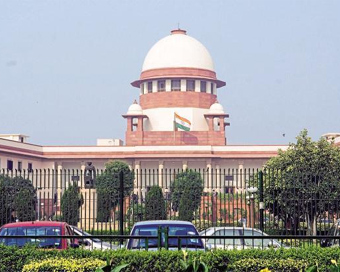 PM Modi visit USA
PM Modi visit USA Only the mirror in my washroom and phone gallery see the crazy me : Sara Khan
Only the mirror in my washroom and phone gallery see the crazy me : Sara Khan Karnataka rain fury: Photos of flooded streets, uprooted trees
Karnataka rain fury: Photos of flooded streets, uprooted trees Cannes 2022: Deepika Padukone stuns at the French Riviera in Sabyasachi outfit
Cannes 2022: Deepika Padukone stuns at the French Riviera in Sabyasachi outfit Ranbir Kapoor And Alia Bhatt's Wedding Pics - Sealed With A Kiss
Ranbir Kapoor And Alia Bhatt's Wedding Pics - Sealed With A Kiss Oscars 2022: Every Academy Award Winner
Oscars 2022: Every Academy Award Winner Shane Warne (1969-2022): Australian cricket legend's life in pictures
Shane Warne (1969-2022): Australian cricket legend's life in pictures Photos: What Russia's invasion of Ukraine looks like on the ground
Photos: What Russia's invasion of Ukraine looks like on the ground Lata Mangeshkar (1929-2022): A pictorial tribute to the 'Nightingale of India'
Lata Mangeshkar (1929-2022): A pictorial tribute to the 'Nightingale of India' PM Modi unveils 216-feet tall Statue of Equality in Hyderabad (PHOTOS)
PM Modi unveils 216-feet tall Statue of Equality in Hyderabad (PHOTOS)The Badminton Association of India (BAI) has announced a 14-member-strong India squad for
- Men’s Sr Hockey Nationals to be played in division-based format from April 4
- Mensik denies Djokovic 100th title in Miami final
- KIPG: Son of a vegetable vendor, Bihar’s Jhandu Kumar eyes Worlds, 2028 Paralympics
- Hardik Singh credits hard work and team unity for receiving HI Midfielder of the Year award
- Djokovic, Alcaraz land in same half of Miami draw
SC questions Centre, reserves verdict on adultery law Last Updated : 09 Aug 2018 01:09:26 AM IST 
The Supreme Court The Supreme Court on Wednesday questioned the Central government for defending the adultery law that punishes only a married man for extramarital affair with a married woman. The court reserved its judgment on the validity of the law.
As the government defended the retention of Section 497 of the Indian Penal Code (IPC) for preserving the "sanctity of marriage", a five-judge Constitution Bench headed by Chief Justice Dipak Misra asked as to how it preserved the "sanctity" as the extramarital affair was non-punishable if the woman's husband stood by her.
On the conclusion of arguments, the bench also comprising Justice Rohinton Nariman, Justice A.M. Khanwilkar, Justice D.Y. Chandrachud and Justice Indu Malhotra, reserved its verdict.
"Where is the sanctity of marriage when the husband can consent?" asked Justice Nariman.
The Chief Justice said: "We are not questioning the legislature's competence to make laws but where is the 'collective good' in Section 497?"
Telling the Centre's counsel and Additional Solicitor General Pinki Anand that "dichotomy is manifest (in Section 497)", Chief Justice Misra said: "The husband can only have control over his emotion and cannot ask his wife to do this or that."
The court was hearing a PIL that challenged the constitutional validity of Section 497 and Section 198(2) of the Code of Criminal Procedure.
The Additional Solicitor General said: "Marriage includes just not the spouses but the families, children, communities and society" and that its sanctity could not be violated."
Insisting that the penal provision should remain to punish adultery as it was a threat to the sanctity of marriage, Anand said that there was no claim to privacy in an adulterous life.
The Chief Justice, in a lighter vein, said that the offence of adultery is like a man calling his wife's paramour home and getting him arrested for trespass. Justice Nariman then quipped: "Spouse trespass."
"The sanctity of marriage is dependent on mutual reciprocity, willingness for adjustments and accommodations and when we marry there is no permanent consent for sex by the wife," the Chief Justice said pointing to changing times.
In fact, there was no permanent consent for anything in marriage, said CJI Misra.
In 1860, the concept was that woman was a chattel, and thus this provision for consent by the husband to take away the criminality in extramarital sexual relationship between a married man and married woman, said Justice Nariman while dwelling on the times when the penal code was enacted.
The heart of the provision, Justice Nariman said, was that the husband of a wife in an adulterous relationship could sue her paramour and if he thought that the affair was fine then sweep it under the carpet.
Justice Chandrachud said the court by constitutional interpretation could not widen the canvas of an offence but narrow it down. He made the remark in response to Additional Solicitor General's plea that the court, instead of reading down the provision, could make it gender-neutral, thereby extending the offence to women in adulterous relationships.
Even if we made Section 497 of the IPC gender-neutral it would address the issue of punishing the man and sparing the woman, but "we still have to decide whether it should be a crime at all", said Justice Chandrachud.
In a rejoinder argument, petitioner Joseph Shine's counsel Kaleeswaram Raj said that the family as an institution could not be preserved by the State's police power.
It should rest on the foundation of love, honesty, trust, and faithfulness between the spouses, Raj said, adding that the State had no business to penalise in the guise of preserving the institution of family.
Senior counsel Meenakshi Arora, appearing for an intervenor, said that criminal law should not be used to regulate conducts like adultery as this could be done by other means, including divorce.
She said that the State could not sustain the institution of marriage by coercion or using criminal law to enforce a code of conduct.IANS For Latest Updates Please-
Join us on
Follow us on








172.31.16.186







